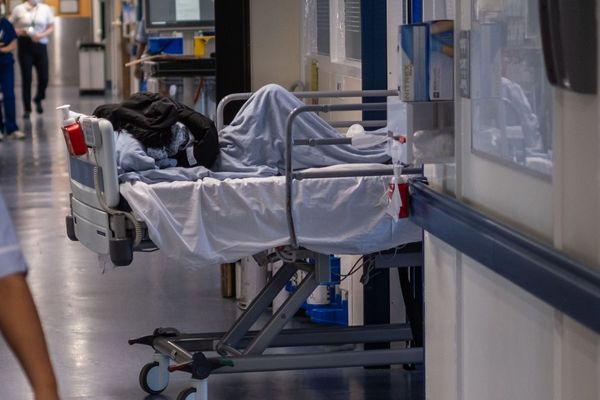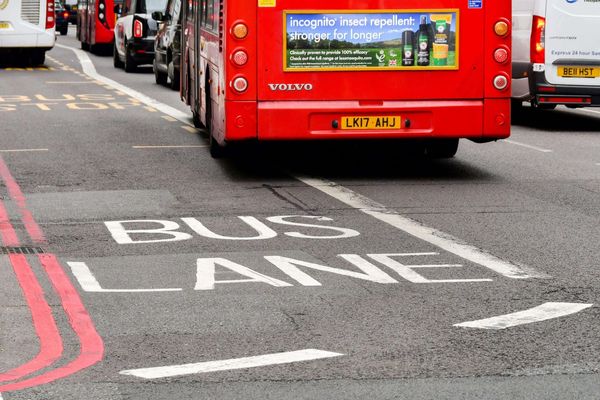
“Promise me you’ll take care of my son.”
Those were Amber Nicole Thurman’s last words to her own mother. The 28-year-old woman in Georgia died of sepsis after she waited 20 hours at an Atlanta hospital for medical care, as doctors delayed performing a routine procedure she badly needed following an incomplete medication abortion. A report obtained by ProPublica confirmed the death was preventable.
Anti-choice rhetoric rarely makes space for reality. For medical professionals, the threat of prosecution can quickly eclipse a patient’s need for safe, timely and appropriate treatment. Death was an inevitable outcome of America’s steady repeal of reproductive rights, as was the reduced availability of safe birthing services, sexual health care and miscarriage management, with the majority of obstetrician-gynaecologists reporting that maternal mortality has increased and racial and ethnic inequities have worsened since Roe v Wade was overturned.
Pissweak “exceptions” about protecting the “life of the mother” might be convenient talking points for Republican lawmakers who are denying people healthcare, but they are meaningless in an emergency ward where doctors delay and deny care under the shadow of criminal retribution.
“She was loved,” Democratic Vice President Kamala Harris said of Thurman in a speech in the battleground state of Georgia on Friday. “And she should be alive today.” She had her future all planned out, Harris said: “What she wanted to do for herself, for her son, for their future.”
As feminist author Jessica Valenti wrote, the speech broke new ground because too often politicians will argue for reproductive freedom by relying on abortion stories involving assault, incest, a tragic diagnosis or a medical necessity. Harris amplified an abortion story that would have been unremarkable were it not for the fact that doctors were anticipating the state’s abortion ban that came in a few weeks after Thurman’s death.
Here was a mother who was headed to nursing school and did not have the desire or capacity for another child. Or as Valenti put it, Harris expressed a sentiment that too many politicians will not: “The punishment for wanting to set your own course in life should not be death”.

Voters in the US care about abortion. It has overtaken the economy as the single most important issue to women voters younger than 45, and polling conducted last week by Fox News found for 27% of all respondents abortion was the single most important factor motivating them to go out and vote this election.
Donald Trump’s public position has been a mess for decades. In the 1990s he was “very pro-choice”; by 2011 he said he was “pro-life”. But in the run-up to the election he has been inconsistent.
On one hand, he’s been happy to take credit for the overturning of Roe v Wade, but on the other, he refused to sign onto a national abortion ban, failing to agree on a coherent policy message with his running mate JD Vance, and angering Evangelicals who don’t want him to soften his stance on reproductive rights (as other Republicans have strategically done).
He also continues to repeat the revolting lie that Democrats support “executing babies” or abortion “after birth”, taking the fact that support for abortion drops as gestation increases to its delusional extreme by fearmongering about what is no longer abortion at all: make-believe infanticide. Of course the vast majority of abortions in the US happen in the first trimester.
Harris has been consistent in blaming Trump for his role in overturning Roe v Wade (via his Supreme Court appointees) and the subsequent state abortion bans — abortion is now restricted in about half of US states.
“This is a healthcare crisis, and Donald Trump is the architect of this crisis,” Harris reiterated on Friday. The next day Trump claimed if he won the election: “Women will be happy, healthy, confident and free. You will no longer be thinking about abortion because it is now where it always had to be, with the states.”
In fact, a KFF survey released in August found 74% of American women aged 18 to 49 “somewhat” or “strongly” oppose leaving it up to the states to decide whether abortion is legal (including more than half of Republican women voters polled).
So what about the ballot initiatives? Ten states will vote on ballot measures to enshrine abortion access in their constitutions in November. Democratic strategists might be banking on the fact these could harm Republican candidates in places like Arizona, Nevada and Florida, but the relationship between these initiatives and triumphant candidates is complicated. Abortion is polarising but not always along party lines.
As Arizona State University academic Benjamin Case wrote: “Just because a voter cares deeply about abortion rights does not necessarily mean they will vote for Democrats”. Never forget last year Trump’s support held steady in surveys even for those who wanted abortion to be “mostly legal”, while polls show Republican women voters also overwhelmingly support access to abortion.
Experts have long warned that the repeal of abortion rights will cost women their lives, whether directly, like in the tragic case of Amber Nicole Thurman, or indirectly by harming reproductive healthcare and worsening America’s already humiliating maternal mortality rate (the number of women who died while pregnant, during labour or soon after childbirth skyrocketed in Texas following the state’s abortion ban).
Abortion is a common procedure. If you haven’t had one, it is very statistically likely that someone you love has. Yet it isn’t something at the forefront of most people’s minds when it isn’t directly impacting their lives, especially in a cost of living crisis. The question is not whether Americans support abortion rights — a majority do — it is whether that support translates into votes and for whom.
Two days after ProPublica published Thurman’s story, it revealed the story of Candi Miller, 41, who stayed at home and died as she was too scared to seek medical care. Her sister said doctors told Miller her lupus, diabetes and hypertension made having another baby medically risky. ProPublica reported her teenage son watched her suffer in pain for days after she took the abortion pills she had ordered online. Her husband found her unresponsive in her bed, her three-year-old daughter by her side. Maternal health experts deemed her death preventable, blaming the state’s abortion ban.







